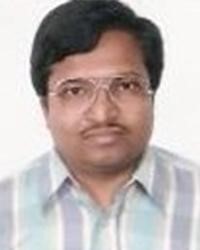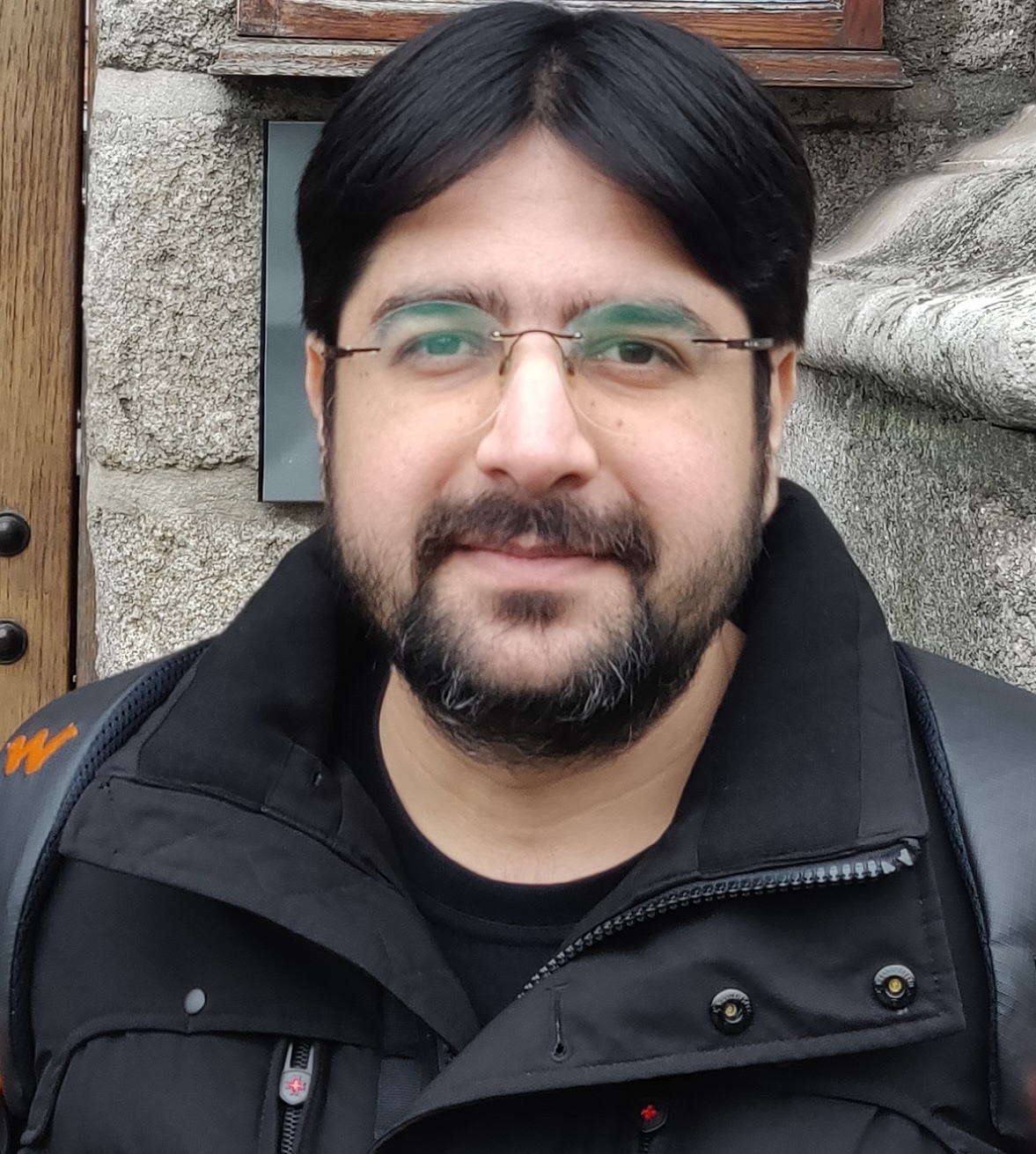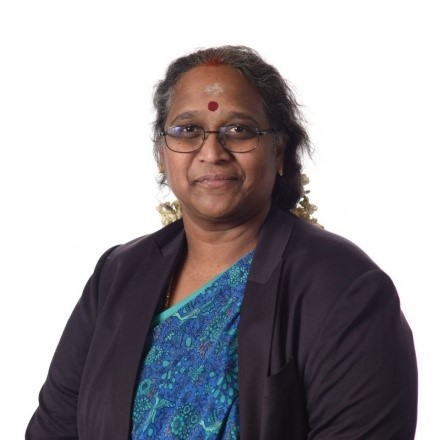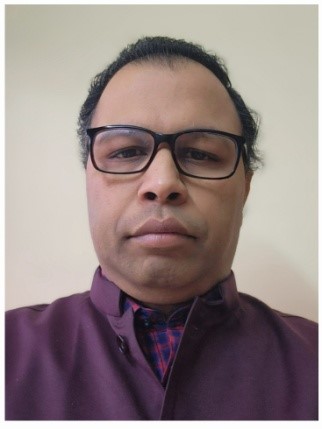Invited Speakers
| Keynote Address: | Dr. T Srinivas |
| 13.12.2024 (11.00AM to 11.45AM) | Professor, IISc & Chair, IEEE Bangalore Section |
Biography:
Dr. Srinivas Talabattula is Professor in ECE Dept, Indian Institute of Science, Bangalore. He obtained B.Sc (Hons) in Physics from New Science College, Hyderabad, and ME (integrated) and Ph.D from IISc. He was a Post-Doctoral research fellow at Toyohashi University of Technology, Japan during 1992-1996. His area of research interest is Optical Communications, in particular, Photonic Integrated Circuits. He published about 150 papers and guided 28 Ph D students. He is a member of the National Board of Accreditation, NBA. He was the chairman GATE (IISc zone) during 2010-13. He is an active volunteer of IEEE Bangalore Section and was the Chair of IEEE Photonics Society IEEE Communication society Bangalore Chapter. Presently he is the chair of IEEE Bangalore Section.
Topic: Quantum Information Technology using photonics
Abstract:
Quantum Communications involves dealing with information represented by quantum states of objects like photons. The key feature is that '0' and '1' levels are not deterministic, but expectations of wave functions. Information is represented as superposition of these quantum states. Quantum information theory presents several strange results, such as no cloning, entanglement, and dicord. Quantum approach provides enormous possibilities, such as super dense representation and storage of classical information, perfect security, and enormous computing possibility.
Implementation is a challenge due to requirement of devices. Photonics promises to provide solutions to many of these challenges. Recently several implementations of quantum information systems have been successfully demonstrated. For example Tokyo QKD network (2010) and World's first quantum communication satellite (as claimed by China, Aug 2016). In this presentation, after a brief description of basics of quantum communication, we present the representation of quantum information using optical waveguide modes. Then a few examples of implementation will be discussed, namely, directional coupler output as an analog of superposition state, quantum Hadamard gate using photonic bandgap structures etc. Finally we examine a higher dimensional representation of quantum information using Qudits and the corresponding BB84 protocol for highly secure quantum communication
| Invited Speaker 1: | Prof. Michael Welzl, |
| 13.12.2024 (2.00 PM to 2.45PM) | Professor, University of Oslo, Norway |
Biography:
Michael Welzl is a full professor in the Department of Informatics of the University of Oslo since 2009. He received his Ph.D. (with distinction) and his habilitation from the University of Darmstadt / Germany in 2002 and 2007, respectively. Michael has been active in the IETF and IRTF for many years, e.g. by chairing the Internet Congestion Control Research Group (ICCRG) leading the effort to form the Transport Services (TAPS) Working Group. He has also participated in several European research projects, including roles such as coordinator and technical manager. His research interests include transport protocols and network architectures, with a focus on the Internet and on performance as well as energy efficiency.
Topic: Transport Services: A new Standard API for the Internet
Abstract:
In recent years, the Internet’s transport layer has undergone some significant changes. Notable examples of newly standardized Internet protocols are HTTP/3 (which uses QUIC instead of TCP) and Multi-Path TCP. Application developers should be able to benefit from the services that such new developments offer without having to rewrite their code. A new standard from the Internet Engineering Task Force (IETF) makes this possible: the new Transport Services API is meant to replace the Berkeley sockets API, and it removes the static compile-time binding between applications and underlying protocols and network interfaces. The standard also gives advice on how mechanisms underneath it could suitably engage and control network protocols based on application requirements.
One implementation of a Transport Services system is particularly noteworthy: Apple’s Network.framework. As one of the major contributors to this IETF standard, Apple has been recommending this API to all their application developers and has been using it for its own applications since 2018 (beta for iOS 12 and macOS Mojave). Since 2022, an application using this API implementation may benefit from QUIC without even noticing that it does not operate over TCP anymore.
This talk will give an overview of these new developments and discuss their implications. Besides providing more flexibility in the Operating System and the network, the richer service set the new API offers changes how we should think of networking, even when using higher-layer systems (pub/sub middleware, REST, RPC, ..). This can create new opportunities for research on distributed systems and networked applications in general.
| Invited Speaker 2: | Prof. Dr. Mohit P Tahiliani |
| 13.12.2024 (3.00PM to 3.45PM) | Associate Professor, NITK, Surathkal |
Biography:
Mohit P. Tahiliani is an Associate Professor of Computer Science and Engineering at National Institute of Technology Karnataka (NITK), Surathkal, India, and a Member of the Board of India Internet Engineering Society (IIESoc). He obtained Ph.D. in the area of Congestion Control Mechanisms for the Next Generation Internet from the NITK Surathkal, India in 2013. His areas of interest include Network Congestion Control, Queue Disciplines, Network Function Virtualization, Deterministic Networking, IPv6 deployments, Named Data Networks, and Distributed Ledger Technology. He has executed projects in these areas that have been funded by Intel Technologies India Pvt. Ltd., Bangalore, ABB Global Industries and Services Pvt. Ltd., Bangalore, Robert Bosch Engineering, and Business Solutions Pvt. Ltd., Tata Communications Ltd., Epsilon India, Robosoft Technologies Pvt. Ltd., Quantum Networks, Samsotech International Dubai, MACS-G Solutions Dubai, Outside the Stacks USA and Futurewei Technologies USA. Mohit received the EMC Young Achiever of 2015 Award from EMC Corporation, Bangalore, the Outstanding Young Professional Volunteer Award of 2021 by IEEE Bangalore Section and IEEE Bangalore Section Chair's Recognition in 2024.
Mohit has contributed to open-source projects for more than a decade. A packet scheduler developed by his team at NITK Surathkal to fight the Bufferbloat problem got merged into the mainline of the Linux kernel (v5.6). He is a Member of the Steering Council of ns-3, and a co-maintainer of traffic-control and TCP modules in ns-3. He served as a Member of the PC for Workshop on ns-3 (WNS3) for the past eleven editions. Besides, he served as a Mentor for Google Summer of Code (GSoC) from 2017 - 2024 for the ns-3 organization and has been one of the Organization Administrators since 2021. He also served as an Organization Administrator for ns-3’s participation in Google Code-In (GCI) during 2018 and 2019.
He has 60+ technical publications in peer-reviewed international conferences and journals. He is a Reviewer for IEEE Internet of Things, IEEE Transactions on Cloud Computing, IEEE Transactions on Networking, Elsevier Journal of Network and Computer Applications, Computer Communications, Inderscience journals, IEEE Communication Letters, and held several other roles in IEEE and Springer conferences. He served as a Guest editor for Annals of Telecommunications, Springer journal. He is a Senior Member of IEEE, a Member of the Executive Committee of IEEE Mangalore Subsection for 10 years, Student Activity Chair of IEEE Mangalore Subsection during 2015-2017, Secretary during 2021 and Chair during 2023. He is also a member of ACM and TiE Mangaluru.
Topic: Aggregating Multiple Internet Connections using Open Multipath TCP Router
Abstract:
Majority of the present day devices are multi-homed consisting of several network interfaces. For instance, every smartphone today is typically designed to have at least two interfaces which allow them to connect to Wi-Fi and cellular networks. Multi-homed devices can communicate and access resources on multiple networks simultaneously (also known as WAN aggregation), allowing for increased network redundancy, load balancing, and improved network performance. To leverage the benefits of WAN aggregation, several multipath transport protocols (Multipath TCP, Multipath QUIC and others) have been proposed. Nevertheless, they are not widely used primarily because application servers do not support aggregation yet. This talk will discuss how Open Multipath TCP Router (OMR) can be used to aggregate multiple Internet connections and improve the Quality of Experience for end-users even when the application servers do not support aggregation.
The following aspects will be discussed in this talk:
1. Introduction to Open Multipath TCP Router (OMR)
2. Setting up OMR on Raspberry Pi
3. Setting up OMR Virtual Private Server (VPS)
4. Aggregating multiple Internet connections using OMR
5. Testing the effectiveness of connection aggregation
6. Advanced applications of OMR: "Promoting HEALTH in Agumbe Project" funded by IEEE Communications Society and Tech4Good.
| Invited Speaker 3: | Dr. Gang Li |
| 14.12.2024 (11.00AM to 11.45AM) | Professor, Deekin University, Melbourne Campus, Australia |
Biography:
Gang Li, Full Professor and academic board member of Deakin University. He is the AI director in the Deakin Cyber Security Strategical Research Centre. He serves as the chair for IEEE Task Force on Educational Data Mining (2020-2023), and on the IEEE Data Mining and Big Data Analytics Technical Committee (2017-2019 Vice Chair), IEEE Enterprise Information Systems Technical Committee. He is the editor of Springer's CCIS series, and on the editorial board of prestigious journals including Decision Support Systems, Cyber Security. He also serves the role of associate editor and editorial board for social science journals including Tourism Management, Journal of Travel Research, Asia Pacific Journal of Tourism Research and Information Technology & Tourism.
He is an internationally recognized expert in data science, data privacy and business intelligence. His research has been funded by various agencies, including ARC-LP, India’s Sparc Scheme and Hong Kong GRF. He has co-authored 10 papers that won best paper prizes, including Springer’s IP&M Journal 2023 Best Ph.D. Paper Award Winner (Honorable Mention), IT&T Journal Paper of the Year 2017 and 2023, 2007 Nightingale Prize by Springer, etc.
Topic: Strategic Suppression of Cyber Propaganda
Abstract:
Cyber propaganda has become a potent weapon for influencing public perception on Online Social Networks (OSNs), exploiting both individual cognitive biases and the complex topologies of these networks. Traditional countermeasures often rely on continuous control strategies, which may not be sufficient for addressing the dynamic and evolving nature of cyber propaganda.
This keynote provides an overview of cyber warfare, and then introduces the approach based on propagation model and game theory. A novel hybrid control framework is introduced to effectively suppress cyber propaganda. We also address the dual challenge of propaganda dissemination and counter-propaganda efforts, recognizing the need for strategic interventions that balance cost and impact. Experimental validations across various OSNs confirm that our strategic profiles surpass others in cost-effectiveness.
Related work has been recently published in IEEE Transactions on Information Forensics and Security (TIFS).
| Invited Speaker 4: | Dr. Gnanapriya C |
| 14.12.2024 (12.00PM to 12.45PM) | Associate Vice President, Infosys, Bengaluru |
Biography:
Gnanapriya (Priya) is Associate Vice President, Unit Technology Officer, Global Head of Technology & Architecture Practice – Communications, Media & Technology Business Unit (CMT), Infosys.
Priya has 31+ years of experience in Telecom & IT. She contributes to unit strategy, drives technology adoption for business solutions across varied programs globally.
She has been driving Digital Transformation, Open Digital Architecture, IT roadmap, Cloud migration, Open-Source Adoption, AI Strategy, 5G / Edge, 5G Use Cases & Industry solutions, Data Modernization, Legacy & Technology Modernization, Innovation, guiding varied transformation & modernization programs for CMT global clients and part of Infosys Technology Council.
She recently received, ‘Tech Leadership Award’ from Analytics India Magazine ‘the Rising 2024’ event, ‘Technologist of the Year Award’ at ICWITE 2022 by IEEE WIE, ‘Women Icons Asia Technology Award 2022’ by Women Icons Network, Singapore, ‘Top 10 Women Tech Leaders India Award 2022’ by REVA University, RACE & Terra Logic. Previously received ‘Outstanding Achievement’ Award under Disruptor category of “Global Women in Telco & Tech” Awards for 2020. She has won Infosys AFE individual and team awards.
Under her guidance & drive, Infosys has won 17 Outstanding Catalyst Team Awards in TM Forum, she received Individual Recognition Award @ Industry TM Forum, serving as TMF Collaboration Sub-committee member. She had contributed to TMForum OpenAPIs, ODA, Software Marketplace, ZTP, Edge, 5G, technology reports, reference architectures. She is a speaker in multiple Industry and Technology Forums. She received ‘Best Technical Presentation’ award by Society of Petroleum Engineers. As part of India 5G hackathon, 2 of the solutions recognized in Top 10 in Minister’s Conclave, 5G use case discussions with DoT, Ministries of vertical industries, contributed to India 6G Vision paper.
She is in the Governing Board of Linux Foundation Networking. She is a Senior IEEE member, IEEE ComSoc Vice Chair, Bangalore Chapter, IEEE WIE member, IETE Fellow, Fellow Institute of Engineers. She has co-authored book on Digital Signal Processing I, II editions published by McGraw Hill, International edition and translated to Mandarin.
Topic: Innovation Mindset
Abstract:
In last many years, enterprises have grown their markets and revenues through innovations. Innovation can be at varied levels, be it business model, technology, systems, processes, ways of working and many more. It can be
• exploration, innovation in new areas, providing huge impacts and generate high value
• exploitation, grass root innovation, demonstrate incremental, continuous impacts and value in existing areas
Innovation mindset brings in the key characteristic needed, approaches and pathways to address innovation challenge. The session also covers industry experiences, opportunities and the need to build innovative mindset.
| Invited Speaker 5: | Mr. Anindya Saha |
| 14.12.2024 (03.00PM to 03.45PM) | Vice President, Wireless - Tejas Networks, Bengaluru |
Biography:
Anindya Saha, VP of Wireless (CTO Office) at Tejas Networks, boasts nearly 28 years of expertise in telecommunications. He specializes in Software Defined Radios, overseeing Baseband and RF system design for 5G Products. Formerly CTO at SaankhyaLabs, he spearheaded the design and development of Baseband and RF subsystems for various wireless communication products, including 5G, Satellite Communication, Broadcast Receivers, and WhiteSpace modems. With 40+ approved US and India patents, he's acclaimed for his work, earning the "Hall of Fame" award from TSDSI for his contributions to "Broadcast Broadband Convergence." Anindya is active in IEEE as Chair of the Communication Society, Bangalore Chapter, participating in 3GPP, ORAN, and TSDSI standardization. He holds a Master’s degree in electrical communication Engg from IISC, Bangalore, and a Bachelor’s degree from IIT-BHU, Varanasi, where he received the Gold Medal in Graduate Studies. Before SaankhyaLabs, Anindya led award-winning SoC designs at Texas Instruments and Broadcom. His profile is available at https://in.linkedin.com/in/anindyasaha.
Topic: AI and Machine Learning in Wireless Network
Abstract:
Integrating Artificial Intelligence (AI) and Machine Learning (ML) in wireless networks transforms communication systems' design, optimization, and management. This talk explores the application of AI/ML techniques in addressing challenges in Telecom Networks. Key advancements in network automation, predictive analytics, and adaptive optimization will be discussed alongside emerging trends.